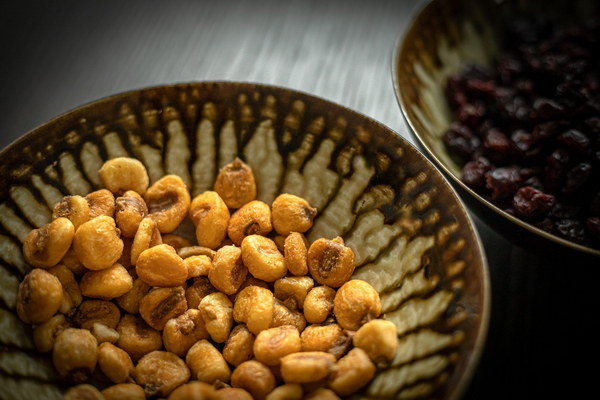Unresponsive to Traditional Chinese Medicine Understanding the Possible Reasons and Solutions
Introduction:
Traditional Chinese Medicine (TCM) has been practiced for thousands of years and is known for its holistic approach to health. Many people turn to TCM for various health issues, including using herbal remedies for rejuvenation and energy boosting. However, some individuals may experience a lack of response to TCM treatments, leaving them frustrated and confused. In this article, we will explore the possible reasons behind this lack of response and provide solutions to help those who have not found success with TCM.
1. Inaccurate Diagnosis:
One of the primary reasons for a lack of response to TCM is an inaccurate diagnosis. TCM relies heavily on the accurate assessment of an individual's constitution and imbalances in the body. If the diagnosis is incorrect, the prescribed treatment may not address the root cause of the problem, leading to a lack of improvement.
To overcome this, it is crucial to consult with a qualified TCM practitioner who has extensive experience in diagnosing and treating patients. A thorough medical history and physical examination should be conducted to ensure an accurate diagnosis.
2. Incorrect Prescription:
Even with a correct diagnosis, the lack of response to TCM can still occur if the prescription is incorrect. TCM treatment involves the selection of specific herbs and their combination to address the patient's specific condition. If the practitioner has not chosen the right combination of herbs or the dosage is not appropriate, the treatment may not yield the desired results.
To address this, patients should discuss their concerns with their TCM practitioner. If the prescribed treatment is not working, it may be necessary to reassess the diagnosis and adjust the prescription accordingly.
3. Quality of Herbs:
The quality of herbs used in TCM plays a crucial role in the effectiveness of treatment. Poorly sourced or low-quality herbs may contain impurities, contaminants, or insufficient active ingredients, leading to a lack of response. It is essential to ensure that the TCM practitioner uses high-quality, certified herbs.
Patients can ask their TCM practitioner about the source of the herbs and request a certificate of authenticity. Additionally, some practitioners may offer organic or wildcrafted herbs, which are known for their higher quality.
4. Interaction with Other Medications:
Some individuals may be taking other medications that can interfere with the effectiveness of TCM treatments. It is essential to inform the TCM practitioner about all medications, including over-the-counter drugs, supplements, and prescription medications. This information will help the practitioner assess potential drug interactions and adjust the treatment accordingly.

5. Lifestyle and Dietary Factors:
Lifestyle and dietary factors can also affect the response to TCM treatments. Poor diet, lack of exercise, excessive stress, and sleep disturbances can hinder the effectiveness of herbal remedies. Encouraging a healthy lifestyle and making appropriate dietary changes can support the TCM treatment and improve overall health.
Conclusion:
While TCM offers a unique and effective approach to health, it is not always guaranteed to work for everyone. If you have not experienced any improvement after trying TCM treatments, it is essential to reassess the diagnosis, prescription, and quality of herbs. Additionally, addressing lifestyle and dietary factors can help enhance the effectiveness of TCM treatments. Consult with a qualified TCM practitioner to explore these possibilities and find the right path towards achieving optimal health.









